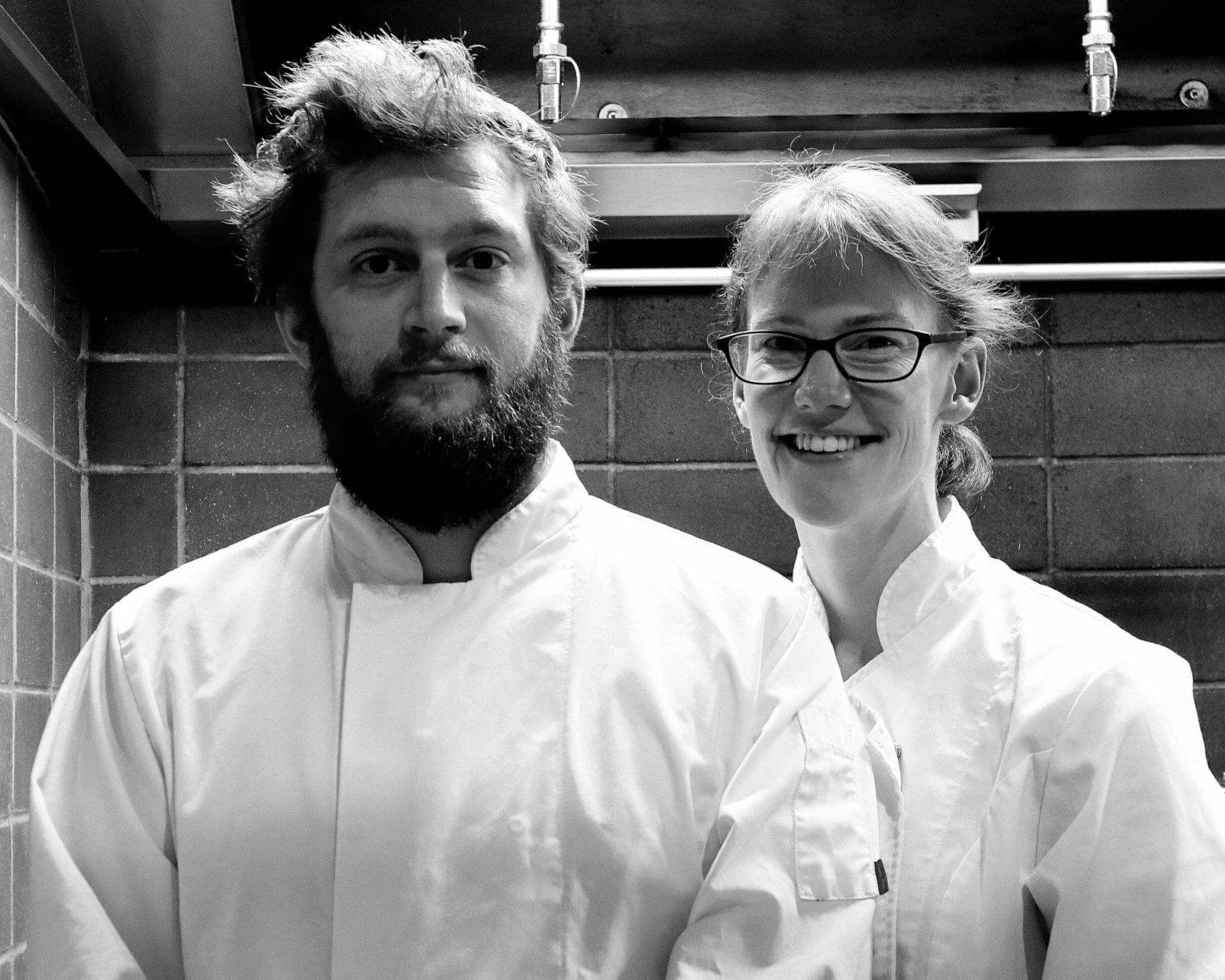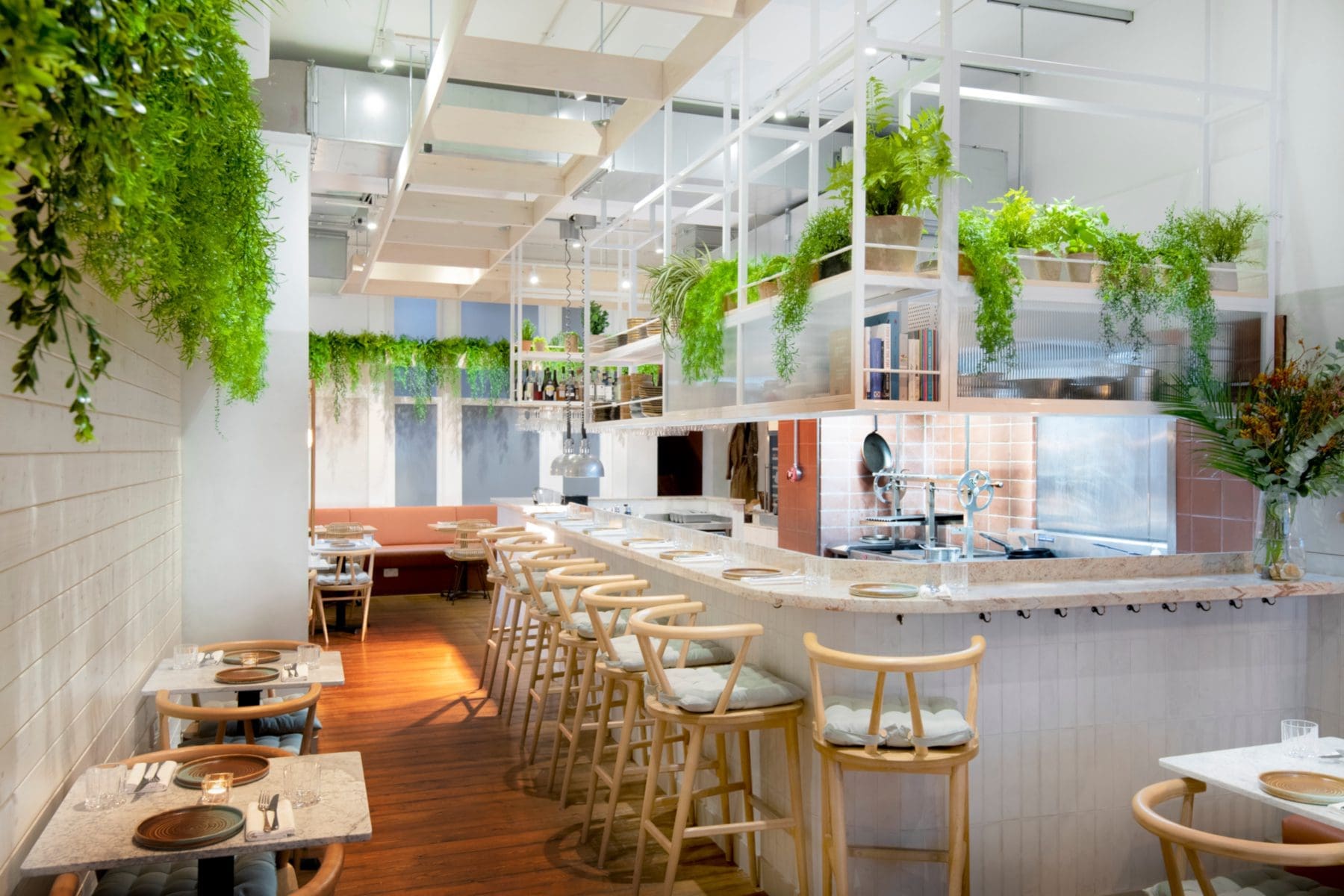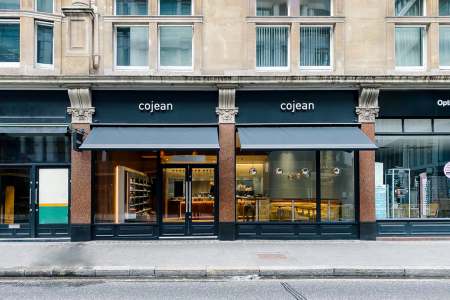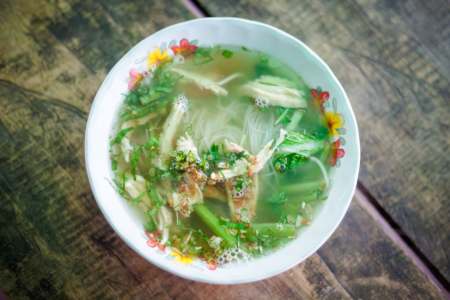Holly Taylor, chef and co-founder of Kindling Restaurant in Brighton gives her advice on how to make the right ethical choices for your food while travelling.
Transporting food great distances is not great for the environment. When we’re at home there are fairly simple ways to keep down our dinner’s carbon footprint, such as visiting our local farmer’s market and/or signing up to a locally grown veg box scheme. But when travelling, it can be tougher.
If you ask a restaurant if their ingredients are locally sourced, can you be sure you’ll get a truthful response? How likely is it that a maître d’ will admit that the only local aspect of their coq au vin is that the Carrefour where they sourced some frozen chicken was just 500 metres away?
One way to improve the chances of enjoying a meal made with locally produced ingredients is to try local recipes. Rock up at any Spanish holiday destination and you’ll find plenty of places offering you paella. But paella may not be a speciality of the region you are visiting; discover what each region has to offer. For example, if in the Basque Country, you could seek out Bacalao pil-pil – this is cod fried with garlic, olive oil and chilli (cooked until the oils form a creamy sauce-like emulsion).
Self-catering gives you much more control. You just apply the thinking and choices that you would when food shopping at home:
- Rather than getting your meat and fish from the nearest Auchan, Billa, Conad, or Mercadona, find a local butcher and fishmonger.
- Where possible cook from scratch rather than buying processed food.
- Purchase from smaller, more local companies – they will naturally have a lower carbon footprint compared to corporate giants.
- Choose products that have certified sustainability credentials.
For travelers looking to maintain a sustainable and veggie-rich diet without the hassle of sourcing local ingredients, an online veggie-rich delivery service can offer a diverse selection of plant-based meal kits delivered directly to your accommodations.

Greenwashing
Sadly, making an item seem to have less of a negative environmental impact than it does is not the preserve of the English-speaking world. Terms such as green, non-toxic, plant-based, plant-derived, pure, raw, healthy, all-natural all lead us to believe the product is a better choice. But they are often used to greenwash – this happens when the claims are unsubstantiated, only refer to a specific aspect of food production, or are entirely false.
As consumer demand for environmentally friendly products has risen, greenwashing has become increasingly common. This has led to growing consumer confusion, making it more difficult than ever to make genuinely sustainable choices.
So, what should you be looking out for? Is there a way to spot greenwashing?
Is the claim vague?
Maybe the company uses very general terms such as ‘green’ or ‘eco-friendly’ but doesn’t provide any reason for their statement. Companies that are proud of their commitment to the environment will have the information behind their claims freely available and will happily answer consumer questions. Watch out for claims that are imprecise and have no evidence to back them up. Don’t be fooled by clever branding that makes a product look environmentally friendly when it has no right to be.
Food Certification
Most of us don’t have the time to research everything we eat, a fact that a lot of companies are relying on! The good news is there’s a growing number of sustainability certification bodies, such as B Corp, The Ethical Company Organisation, Planet Mark and FutureFit Business that provide comprehensive assessments and certifications for companies that truly want to address their environmental impact. These organisations offer businesses a roadmap so they can measure and mitigate their social and environmental impact, with the end goal of reducing their contribution to climate change.

Too good to be true?
When it comes to green washed products, if it sounds too good to be true, there is a good chance that it is. Most sincerely green production practices are going to be lower yield and higher cost – so you should expect to pay more. A company that’s truly committed to reducing its carbon emissions is going to invest money in making changes to production and infrastructure to achieve this.
In the last few years carbon offsetting has become very popular with large corporations who wish to appear more environmentally friendly, but sadly this isn’t a long-term solution to climate change. Sure, planting trees to suck carbon dioxide out of the atmosphere as they grow is a positive thing. But it’s significantly less positive than not producing so many greenhouse gases in the first place. Unfortunately, the buzz around carbon offsetting has rather distracted consumers from the core problem which is skyrocketing carbon emissions. Offsetting schemes aren’t bad, but they don’t cancel out the emissions to which they are linked. Instead, they’re a distraction that stops us from holding companies accountable for their enormous environmental impact. It allows these companies to continue with their unsustainable behaviour while shifting their responsibility for the climate onto the consumer.
Of course, keeping an eye on all of this in a foreign language is laden with challenges. But every better choice makes a difference, no matter how small. Even if all you do is eschew your favourite brand of baked beans until you get home.
Main image: credit JoHunt Restaurants Brighton



